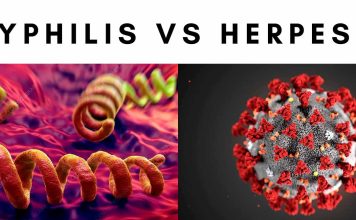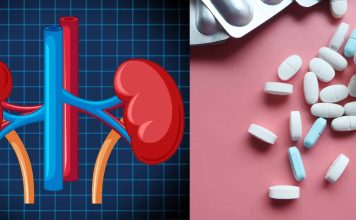Tongue Bite Sleep
After a tongue bite in sleep, you won’t be able to utter anything but “ouch.” This common issue mainly affects children, but it may also affect adults. Although no data exist about how many people bite their tongues, experts believe it happens to everyone at some point.
The majority of the time, you bite your tongue while chewing. During sleep, however, tongue biting is very common. Seizures and other conditions that cause facial muscle spasms may cause nighttime tongue biting.
People who bite their tongues are more likely to develop ulcers, infections, and a disease known as “scalloping.” If you find yourself biting your tongue, it’s important to seek medical help.
Possible causes for tongue bite during sleep
You can bite your tongue in your sleep for a variety of reasons. When anyone bites their tongue during the day, they are most likely conscious. At night, though, you’re more likely to accidentally bite your tongue. Tongue biting during sleep is usually caused by an underlying medical condition.
Bruxism
What is Bruxism?
Grinding, gnashing, or clenching the teeth is known as bruxism (BRUK-siz-um). If you have bruxism, you can unconsciously clench or grind your teeth while awake (awake bruxism) or while sleeping (sleep bruxism).
Medically it considered a sleep-related movement disorder or condition.
How it causes tongue bite during sleep?
Teeth grinding and clenching, also known as bruxism, is a common movement condition that can affect you when you sleep. It normally affects the teeth and jaws, resulting in irritation, pain, and injury. Bruxism, on the other hand, may cause a person to bite their tongue and cheeks. Doctors aren’t sure what triggers bruxism, but they believe it has to do with dreaming or being aroused while sleeping.
Facial Muscle Spasm
Hemifacial(one-sided) spasm is a nervous system problem that involves the muscles on one side of the face to twitch uncontrollably. A blood vessel entering a facial nerve is the most common cause of hemifacial spasm, but it may also be caused by a facial nerve injury or a tumor, or it may not have a cause at all.
Tongue biting can be caused by facial and jaw muscle spasms. This disorder is most common in young children, and it causes the chin to tremble uncontrollably as they sleep.
During sleep, people with these spasms are unable to regulate their facial and jaw muscles, and they sometimes bite their tongues. “Faciomandibular myoclonus” is another name for this disorder.
Illegal and Inappropriate Drug Use
MDMA, also known as “molly” or “ecstasy,” is a psychoactive substance that induces intense euphoria. It also tends to cause bruxism, a disorder in which the teeth, cheeks, and tongue are badly damaged.
Though experts aren’t sure what triggers bruxism in MDMA users, some speculate that the drug can increase the urge to bite or chew. MDMA can cause a reduction in the ability to hold the jaws open, according to research conducted on rats by Trusted Source.
Lyme Disease
In the United States, Lyme disease is the most common vector-borne disease. Borrelia burgdorferi and, in rare cases, Borrelia mayonii are the bacteria that cause Lyme disease. Humans became poisoned after being bitten by infected black-legged ticks.
Lyme disorder is a disease that is not well known. However, it tends to affect the central nervous system as well as bodily reflexes. This can cause you to bite your tongue or cheeks unintentionally. Other Lyme disease symptoms include:
- excessive heat and cold sensitivity
- generalized pain and tingling
- fatigue
- slurred expression
- frequent diarrhea
- vision shifts
Nocturnal (Nighttime) Seizure
Seizures that occur when a person is sleeping are known as nocturnal seizures. They can cause jerking and shaking of the body, as well as an odd nighttime activity such as waking up for no apparent reason or urinating while sleeping.
Tonic-clonic seizures are the most common form of nocturnal seizures. The majority of people who have these forms of seizures at night have epilepsy.
Tongue biting is a common symptom of nighttime seizures. During a seizure, people with epilepsy lose control of their bodies. They can unintentionally bite down on their tongue as a result of this. Bite marks are most often found on the tongue’s tip and sides. Epilepsy affects about 0.7% of the world population.
Rhythmic movement disorder
RMD is a neurological condition characterized by repeated movements of large muscle groups just before and during sleep, frequently involving the head and neck. Zappert and Cruchet identified it as jactatio capitis nocturna and rhythmie du sommeil, separately, in 1905. While REM movements have been recorded, the majority of RMD episodes occur during NREM sleep. RMD is often linked to other psychological disorders or mental disabilities. The condition often results in physical injury as a result of involuntary movements.
When a person is drowsy or asleep, they develop a rhythmic movement disorder. It allows a person’s body movements to be repeated over and over again. This disorder mostly affects children. It can cause them to make humming noises, rocking and headbanging movements, or rolling. These movements can be fast, resulting in tongue biting.
Sleep apnea
Sleep apnea is a potentially life-threatening sleep condition in which breathing stops and starts frequently. You can have sleep apnea if you snore excessively and are exhausted even after a good night’s sleep.
The following are the most popular forms of sleep apnea;
- Obstructive sleep apnea is the most common form of apnea, which happens when the muscles in the throat relax.
- Sleep apnea is a condition in which the brain fails to send sufficient signals to the muscles that regulate your breathing.
- When someone has both obstructive and central sleep apnea, they develop complex sleep apnea syndrome, also known as treatment-emergent central sleep apnea.
While tongue biting is not caused by sleep apnea, it is normal in many people with the condition. This is due to the fact that people with sleep apnea often have big tongues or mouth muscles that relax abnormally during sleep.
Tongue biting can be caused by relaxed muscles and a broad tongue.
How to be sure about “Do you really bite tongue during sleep or not”?
It’s not always easy to tell if you’ve been sleeping with your tongue bitten. There are, however, several markers that can help you detect nighttime tongue biting. There are some of them:
- tongue bleeding
- tongue redness or swelling
- discomfort
- cuts or marks on the tongue
- ulcer on the tongue
- rough, scalloped tongue edges
The treatment procedure for tongue bite sleep
The underlying issue must be treated in order to treat tongue biting.
Sleep bruxism or sleep apnea sufferers may benefit from wearing a mouthguard at night. Consult a dentist or doctor to determine which options are best for you.
Treatments for sleep apnea may include;
- weight loss
- CPAP machine
- surgery
- stopping smoking (this can be complicated, but a doctor can assist you in creating a quit-smoking strategy that is right for you)
If you bite your tongue while sleeping as a result of illegal drug use, stopping the drug normally stops the symptoms. Consult a doctor if you need assistance quitting the medications or are either having health issues after stopping.
Antiseizure medication is the most effective treatment for epilepsy-related nighttime seizures. Antiseizure medication can also help people who have muscle spasms in their face and jaw at night.
The majority of children outgrow their rhythmic movement condition. However, if your child has been hurt while sleeping, you can check with their pediatrician.
Many who have Lyme disease should follow their doctor’s medication recommendations. This typically requires a combination of antibiotics and supportive treatments to help relieve symptoms.
Tongue injuries usually recover on their own without the need for medical treatment. However, you can seek medical help if you experience an ulcer, redness, heavy bleeding, pus, or lacerations.
The Prevention Strategy for tongue bite sleep
If you’ve ever suffered tongue biting while sleeping, there are a few things you can do to keep it from happening again.
Study about the nature of your sleep
As previously reported, tongue biting must be handled in accordance with any underlying conditions that are causing the problem. One way to get to the root of your issue is to ask your doctor for a referral to a specialist who can perform a sleep analysis.
This entails staying in a sleep facility for one or two nights. A sleep specialist can use electrodes and sensors to record some of the body functions.
Your doctor will be able to figure out what’s causing you to bite your tongue by listening to recordings of your brainwave activity, eye response, muscle tone, heart rhythm, and breathing rate. They will then suggest a medication that is right for you.
Using Mouthguard
Wearing a mouthguard will avoid potential complications for many people who bite their tongue. Since each person’s mouth is unique, consult a dentist or doctor to determine which form of mouthguard is right for you. You may want to get a custom mouthguard that suits your teeth perfectly. You could also go for a less expensive, non-customized option.
Try to avoid being stressed
Stress is a common cause of nighttime bruxism, which contributes to tongue biting. Reduce your tension levels during the day to reduce the chances of tongue biting. If you’re not feeling as relaxed as you’d like, try some calming exercises such as deep breathing, meditation, or yoga.
Strictly avoid illegal drugs
Avoid using illegal drugs like MDMA, which can make you more susceptible to bruxism. The more you use MDMA and the more often you use it, the more likely you are to encounter negative side effects.

What to do for tongue injury
This section is for the injury of the tongue caused by the nighttime bite, anytime bite, or caused by other causation.
You should treat a tongue bite at home if it is mild. To reduce discomfort and ensure that the injury heals properly, follow these steps:
- Use soap and water to wash your face, or wear latex gloves.
- Rinse your mouth with water to help you see the injury better.
- Apply pressure to the site of the injury with gauze or a cloth to stop the bleeding.
- If there is any swelling, apply ice or a cold pack wrapped in a thin cloth to the outside of the lips or mouth.
- If bleeding persists or if you find a noticeable deformity, symptoms of infection, or new bleeding, see a doctor.
If the injury is serious, make sure to follow your doctor’s advice as well as the following home remedies:
- Consume soft, easily digestible foods.
- To alleviate discomfort and swelling, take an over-the-counter pain reliever like acetaminophen (Tylenol) or ibuprofen (Advil). (These are OTC drugs but still try not to take drugs without consultation with a doctor)
- Several times a day, apply a cold compress to the affected region for five minutes. You may also eat an ice cube or a fruit-flavored ice pop.
- After swallowing, rinse the mouth with a saltwater solution to reduce discomfort and keep the wound clean. 1 teaspoon non-iodized salt to 1 cup warm water to make a saltwater solution
Maintain Proper Medication
If you’re taking antiseizure medicine, making sure you take it exactly as directed will help you avoid seizures and tongue biting. If you’re still getting seizures or biting your tongue while taking medicine, speak to your doctor about changing your dosage.
Healing Time for Tongue Bite
The number of days a bit tongue takes to recover is determined by the seriousness of the injury. Most people recover easily, within a few days or a week, but if stitches are required or a piece of the tongue has been reattached, it may take longer.
When healing from a bit tongue, eat soft foods like:
- smooth peanut butter
- yogurt
- cottage cheese
- soups
- custards
- ice cream
- sherbets
- eggs
- well-cooked or canned fruits and vegetables
- tuna
Experts recommend avoiding the foods and practices mentioned below, as they can irritate damaged tissue, causing pain and delaying healing:
- juices and fruits of the citrus genus
- tomato juice and tomatoes
- foods that are highly salty or spicy
- using cigarettes
- consuming alcoholic beverages
Doctor may suggest Non-steroidal anti-inflammatory drugs (NSAIDs), such as ibuprofen (Advil) and acetaminophen, are available over-the-counter (Tylenol).
Complications of tongue bite sleeping
A bit tongue will usually recover on its own in a few days. Complications are more likely to occur with more serious injuries. They can include:
- infection, which necessitates urgent medical attention.
- disfigured tongue
- damaged tongue function
- obstructed airway
Few last words
Every now and then, someone bites their tongue. Many who bite their tongues excessively while sleeping, on the other hand, are more likely to have underlying medical problems that should be managed to relieve symptoms. Any existing disorders, such as sleep apnea and epilepsy, must be addressed in order to treat tongue biting.
If you’re not sure what’s causing your tongue biting, a sleep study might be beneficial. Consult a doctor on how to get one and how it will help you sleep better.
You may like to read about Dizziness when waking up.
Last Updated on February 23, 2022 by Learn From Doctor Team






